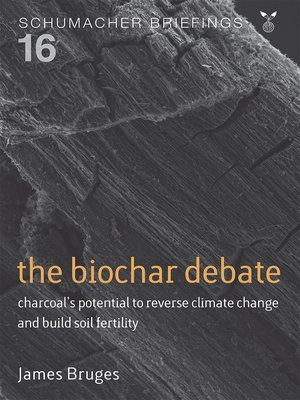The Biochar Debate
ebook ∣ Charcoal's Potential to Reverse Climate Change and Build Soil Fertility · Schumacher Briefings
By James Bruges

Sign up to save your library
With an OverDrive account, you can save your favorite libraries for at-a-glance information about availability. Find out more about OverDrive accounts.
Find this title in Libby, the library reading app by OverDrive.



Search for a digital library with this title
Title found at these libraries:
| Library Name | Distance |
|---|---|
| Loading... |
Charcoal-making is one of the oldest industrial technologies, and in the last decade there has been a growing wave of excitement about its potential for combating climate change. This is because burying biochar (fine-grained charcoal) is a highly effective way to extract carbon dioxide from the atmosphere. In addition it can increase the yield of food crops and the ability of soil to retain moisture. Some people are concerned that awarding carbon credits for biochar could have seriously damaging outcomes. The Biochar Debate agrees, but describes an alternative approach, called the Carbon Maintenance Fund (CMF), that avoids the dangers. This would give every government the incentive to enable businesses, farmers and individuals to increase their country's carbon pool. It is based on remote sensing by satellite, a tried and tested technology, and would be applied globally each year to measure the increase or decrease of carbon in plants, soil and roots. The Biochar Debate sets out experimental and scientific aspects of biochar in the context of global warming, the global economy and negotiations for the future of the Kyoto Protocol. It concludes by encouraging all gardeners and farmers to use biochar to help prevent climate change.







